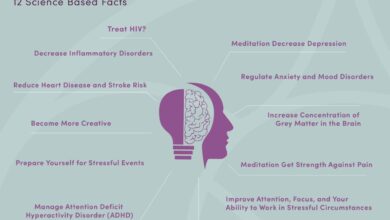
5 Ways to Outsmart Allergies
5 Ways to Outsmart Allergies: It’s a constant battle for millions of people, a war waged against itchy eyes, runny noses, and sneezing fits. But what if I told you there are ways to gain the upper hand? It’s time to take control and reclaim your life from the grip of allergies.
From understanding your triggers to strengthening your immune system, this guide will equip you with practical strategies to minimize allergy symptoms and live a more comfortable life. We’ll explore natural remedies, professional help, and lifestyle adjustments that can make a world of difference.
Get ready to fight back, one sneeze-free day at a time!
Seek Professional Help: 5 Ways To Outsmart Allergies
Sometimes, managing allergies requires more than just over-the-counter medications and lifestyle changes. Seeking professional help from an allergist or immunologist can be a game-changer for many individuals. These specialists are trained to diagnose and treat allergies, offering tailored solutions and long-term management strategies.
Allergy Immunotherapy, 5 ways to outsmart allergies
Allergy immunotherapy, also known as desensitization, is a treatment that aims to gradually reduce your sensitivity to specific allergens. This process involves receiving regular injections or sublingual drops containing increasing doses of the allergen you’re allergic to. Over time, your body builds tolerance to the allergen, leading to fewer and less severe allergic reactions.
- Benefits of allergy immunotherapy:This treatment can provide long-term relief from allergy symptoms, reducing the need for medications. It can also help prevent the development of asthma in children with allergies.
- Types of allergy immunotherapy:There are two main types: subcutaneous immunotherapy (SCIT), where injections are given under the skin, and sublingual immunotherapy (SLIT), where drops are placed under the tongue. The type of treatment depends on the specific allergy and individual factors.
- Duration of treatment:Allergy immunotherapy usually involves several months of regular injections or drops, followed by maintenance doses for several years. The duration can vary depending on the individual and the severity of their allergies.
Allergy Medications
Allergy medications are essential tools for managing symptoms and improving quality of life. There are various types of medications available, each with its own mechanism of action and potential side effects.
- Antihistamines:These medications block the effects of histamine, a chemical released by the body during allergic reactions. They are effective for treating symptoms like sneezing, runny nose, and itchy eyes. Examples include cetirizine (Zyrtec), fexofenadine (Allegra), and loratadine (Claritin).
- Nasal corticosteroids:These medications are sprayed into the nose and reduce inflammation in the nasal passages. They are effective for treating nasal congestion and runny nose. Examples include fluticasone (Flonase), mometasone (Nasonex), and budesonide (Rhinocort).
- Decongestants:These medications shrink swollen nasal passages, relieving congestion. They are available as nasal sprays or oral tablets. Examples include pseudoephedrine (Sudafed) and phenylephrine (Neo-Synephrine).
- Leukotriene modifiers:These medications block the effects of leukotrienes, chemicals that contribute to allergic reactions. They are effective for treating asthma and allergic rhinitis. Examples include montelukast (Singulair) and zafirlukast (Accolate).
- Anti-IgE antibodies:These medications are injected into the bloodstream and block the effects of IgE, an antibody involved in allergic reactions. They are effective for treating severe allergies, including those that cause anaphylaxis. Examples include omalizumab (Xolair).
Managing Severe Allergic Reactions
Anaphylaxis is a severe, life-threatening allergic reaction that can occur rapidly and cause a range of symptoms, including difficulty breathing, swelling of the face and throat, and a drop in blood pressure.
- Immediate action:If you or someone around you experiences symptoms of anaphylaxis, call emergency services immediately. Administer epinephrine (adrenaline) using an auto-injector (like an EpiPen) if available.
- Importance of an action plan:Individuals with severe allergies should have a written action plan that Artikels steps to take in case of an allergic reaction. This plan should include information about medications, emergency contacts, and how to use an auto-injector.
- Avoiding triggers:Knowing your triggers and avoiding them is crucial for preventing anaphylaxis. If you are allergic to peanuts, for example, carefully read food labels and avoid products that contain peanuts.
- Medical alert bracelet:Wear a medical alert bracelet or necklace that identifies your allergies. This can help first responders quickly identify your allergies and provide appropriate care in an emergency.
Last Recap

By taking a proactive approach to managing your allergies, you can reduce their impact on your daily life. Remember, it’s a journey, not a destination. There may be days when your allergies flare up, but with persistence and the right tools, you can find relief and live a fulfilling life, even with allergies.
Sometimes, the best way to deal with allergies is to think outside the box, or maybe even “thinking outside the lox” as they say! This article explains that, just like with lox, there are often creative solutions to common problems.
For example, with allergies, you might find relief by switching to a different type of food, using an air purifier, or even trying a new type of medication. So, don’t be afraid to get creative and explore different options to find what works best for you!
Outsmarting allergies can involve a variety of strategies, from identifying triggers to managing symptoms. One key aspect is ensuring you get enough calcium, especially if you’re avoiding dairy. Luckily, there are plenty of delicious alternatives! Check out 12 calcium rich alternatives to milk to discover some new favorites and keep your bones strong while managing your allergies.
With a little planning and some delicious alternatives, you can enjoy a healthy and allergy-friendly life.
Navigating allergies can be tricky, but there are definitely ways to outsmart them! From choosing the right foods to managing your environment, there’s a lot you can do. If you’re craving a delicious and satisfying breakfast, a bacon ham egg wrap might be a great option, as long as you’re mindful of your specific allergens.
Remember, the key is to find what works best for you and stay informed about your triggers.






